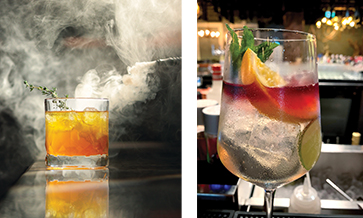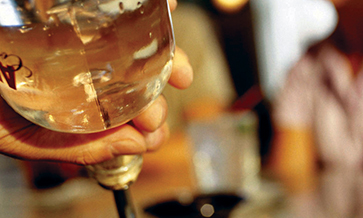The global spirits industry is witnessing a remarkable phenomenon: the resurgence of Indian rum. Long overshadowed by other spirits, Indian rum is now stepping into the spotlight, thanks to a growing number of premium brands redefining what this category can offer.
India has a rich and complex history with rum, dating back to the days of the British Raj. Traditionally, Indian rum was viewed as a commodity product, often mass-produced and aimed at the lower end of the market.
However, the landscape has dramatically shifted. Today’s Indian rum scene is characterized by innovation, quality, and a strong sense of identity, mirroring the global trend towards craft and premium spirits.
This transformation is largely driven by a new generation of distillers who are passionate about quality and authenticity. These producers are experimenting with various production techniques, including the use of high-quality ingredients, innovative fermentation processes, and extended aging periods.
The result is a range of rums that offer complexity, depth and a distinct sense of place.
Unique approaches
Leading the charge in this new wave of Indian rum is Camikara. Known for its unique approach to rum production, Camikara uses pure cane juice, rather than the more common molasses, as its base ingredient.
This choice, along with 3 years of aging in oak barrels, results in a rum that boasts a refined and nuanced flavour profile. Camikara’s focus on quality and its positioning as a sipping rum, as well as a versatile cocktail ingredient, make it a standout in the Indian and global markets.
Other players such as Maka Zai, Pipa Rum and Two Indies, are emerging brands that are quickly gaining a reputation for its craftmanship and innovation.
Several factors are contributing to the resurgence of Indian rum. One of the primary drivers is the global trend towards premiumization in the spirits industry.
Consumers are increasingly seeking out high-quality products that offer unique experiences, and Indian rum producers are rising to meet this demand by focusing on superior ingredients, innovative production methods, and sophisticated branding.
The rise of the craft spirits movement has also played a significant role. This movement emphasizes authenticity, local production, and artisanal methods, all of which align perfectly with the ethos of many new Indian rum brands.
These brands are exploring India’s diverse agricultural landscape, experimenting with different types of sugarcane, unique yeast strains, and varying aging techniques to create rums with distinctive flavours and characteristics.
Sense of place
Additionally, the changing demographics of alcohol consumers, particularly the rise of a younger, more adventurous audience, have been crucial. This group values authenticity, quality, and ethical production practices, and they are drawn to brands that offer compelling stories and a sense of place.
As the global spirits market continues to expand and evolve, there is a growing appetite for unique and high-quality products. Indian rum, with its rich heritage and new-found focus on premiumization, is well-positioned to capture the interest of these discerning consumers.
Indian rum producers can capitalize on this trend by highlighting their distinct flavours, rich histories, and commitment to quality. Collaboration with international brands and participation in global spirits competitions can further enhance their visibility and reputation.
The future of Indian rum looks promising. As more brands enter the premium space and as existing brands continue to innovate, the category is poised for significant growth.
This resurgence is not just a passing trend but a reflection of a deeper, sustained interest in quality and authenticity. With its unique blend of tradition and modernity, Indian rum is set to become a significant player in the global spirits market.














